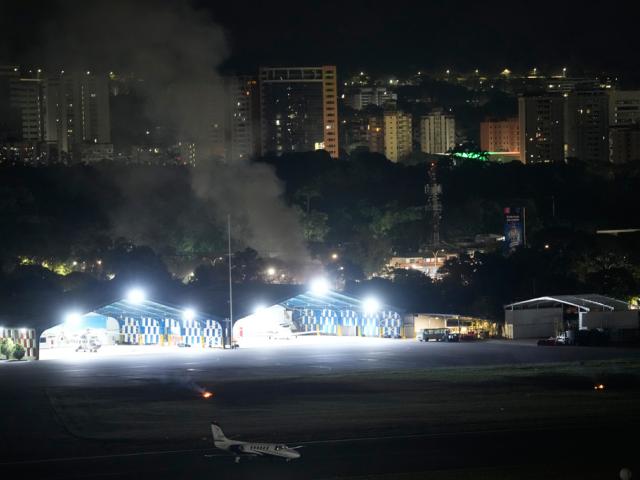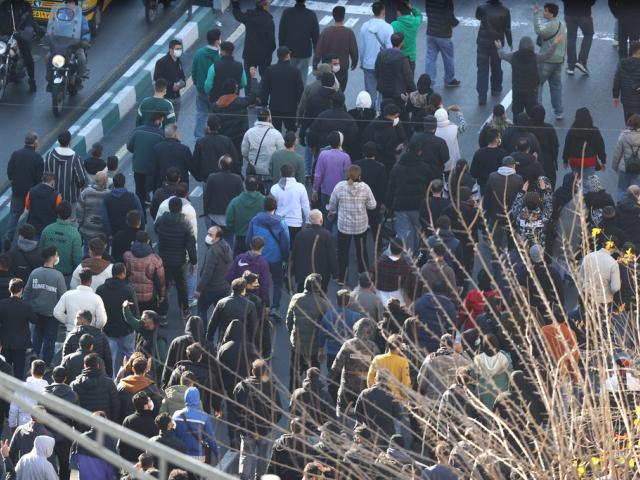KIBBUTZ NAHAL OZ, Israel – An Israeli organization helping prevent worldwide food shortages shifted gears October 7th, after Hamas targeted Israel’s farmers in the Gaza perimeter with death and destruction. Today, farmers are planning to make the desert bloom again.
Nahal Oz sits less than a half mile from the Gaza border. On October 7th, Hamas terrorists killed 15 people here, including the head of security. Nine others were kidnapped.
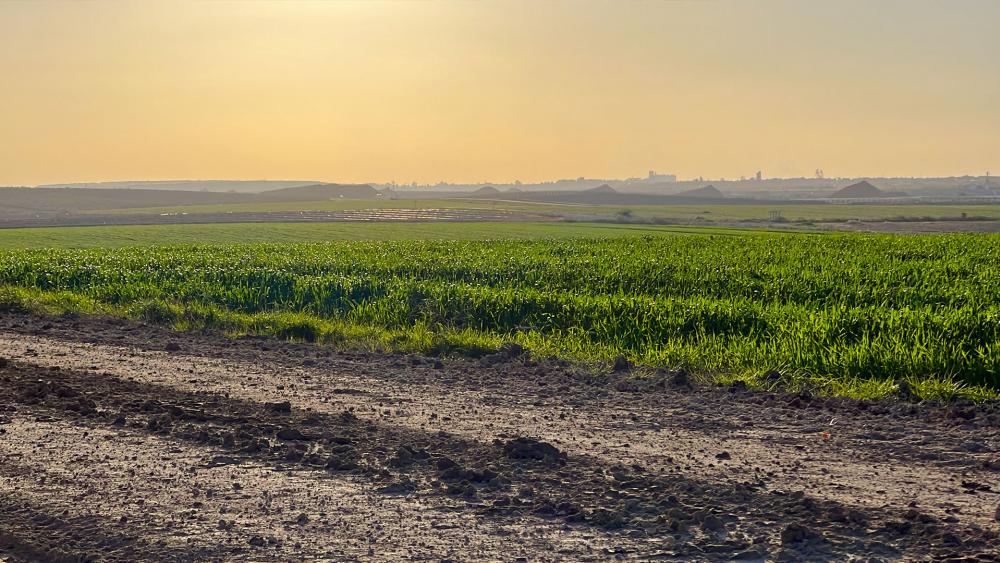 The terrorists also chose another major target: the productive farms of the Gaza perimeter.
The terrorists also chose another major target: the productive farms of the Gaza perimeter.
Moran Friebach's property was one of the targets. "Why they bothered to burn this tractor, this 1.5 million-shekel tractor? Why they bothered to burn all our irrigation equipment?" Friebach asked.
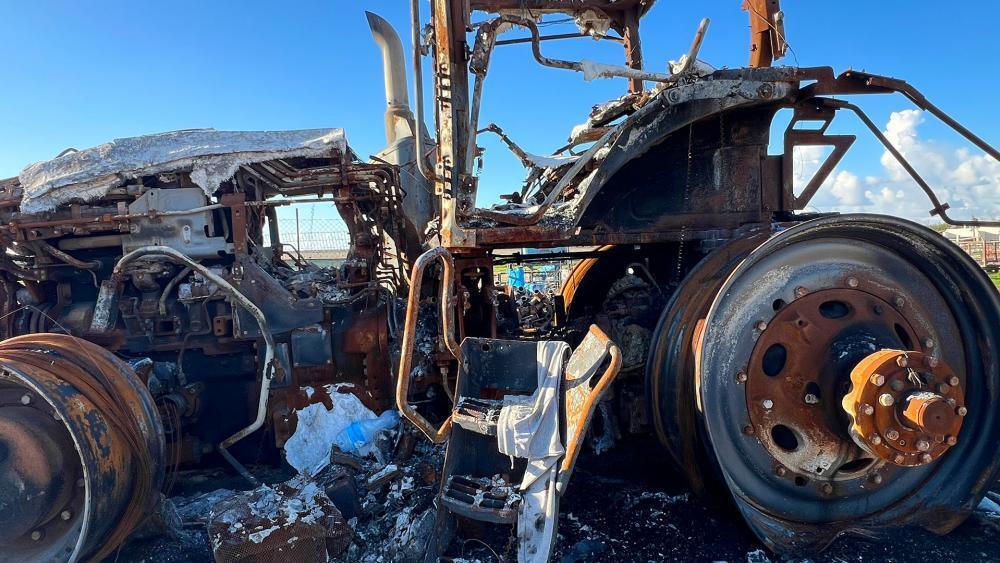 Agriculture in the Negev region of Israel is important to the nation's food security. Some 70 percent of Israel's vegetables and 20 percent of the fruit are grown here. That is why the terrorists targeted agriculture on October 7th.
Agriculture in the Negev region of Israel is important to the nation's food security. Some 70 percent of Israel's vegetables and 20 percent of the fruit are grown here. That is why the terrorists targeted agriculture on October 7th.
"They don't want us here, right?" Friebach stated. "They are trying to take the connection from us to our Land, to our earth, and if you are not doing agriculture, why stay here? Why are you living here? You can live near Tel Aviv."
As the head of agriculture at the kibbutz, Friebach has lived here his whole life.
He said he believed in helping the people in Gaza and about 30 Gazans worked with him on the farm. "I thought that if I would give them money, that if they are working in Gaza, they are earning about 20 shekels ($5-6 per hour). If they (are coming to work for us, they are earning about ($70) a day. If they would have money, they will go to Gaza, they will maybe buy something new – maybe they will make their home better...and by a chance, some of them will use this money to get education for the kids. OK, I was wrong."
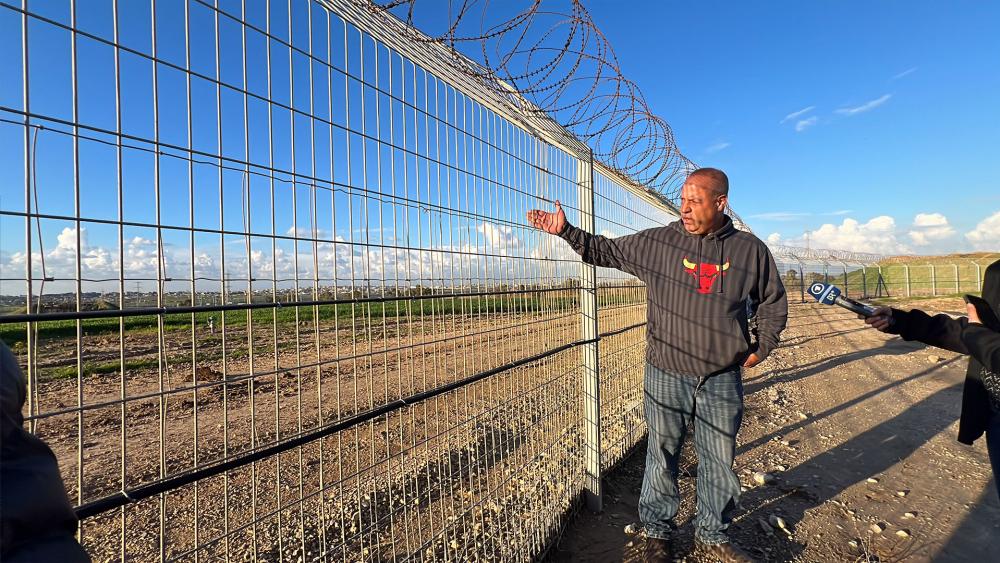 Despite the destruction, he's now looking forward to the next five years.
Despite the destruction, he's now looking forward to the next five years.
He told CBN News, "I see only potential, and I see only work that I have to do in order to rebuild everything, and to put everything back into place better. Not only back as it was – better, that's my mission."
Many say that agriculture is at a crisis level here, in the area where many believe God has fulfilled His word to make the desert bloom.
Estimates add up to $500 million in lost income, around 100,000 acres of agricultural land affected, and a labor force crisis for farmers, who need 30,000 workers.
Danielle Abraham is executive director of Volcani International Partnerships, which helps spread the benefits of Israeli technological advances worldwide.
"Before October the 7th, our whole mission was to tackle global hunger with Israeli agricultural expertise. But on October the 7th, we understood that the agricultural crisis is also at home. And so we pivoted almost immediately," Abraham explained.
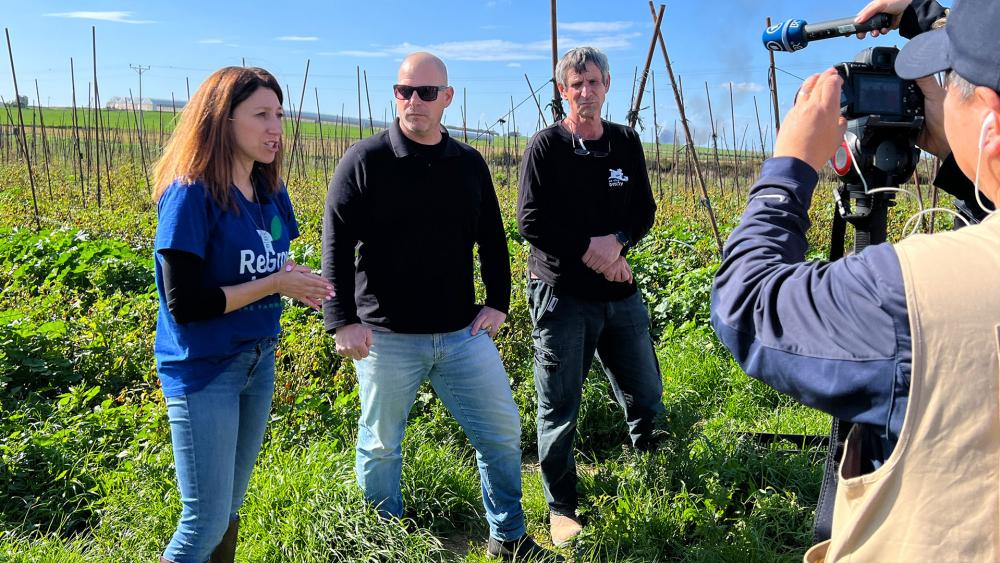 That led her to initiate Project "Regrow Israel."
That led her to initiate Project "Regrow Israel."
"We spoke to our partners in the field across the Western Negev – the farmers, the regional councils –and we said to them, what do you need? And these people had undergone massive trauma. And they said to me, 'Danielle, you have to understand right now, we can't even think about the next hour, let alone the next week or months or years ahead.'"
That means Regrow Israel will focus on helping these communities think through their needs, plan to build a better future and raise money for the areas hit the hardest.
Standing in front of a burned-out place at Kibbutz Alumim, Abraham sadly recalled, "The foreign workers that were living here were targeted. They were targeted, you know, in their beds while they were sleeping."
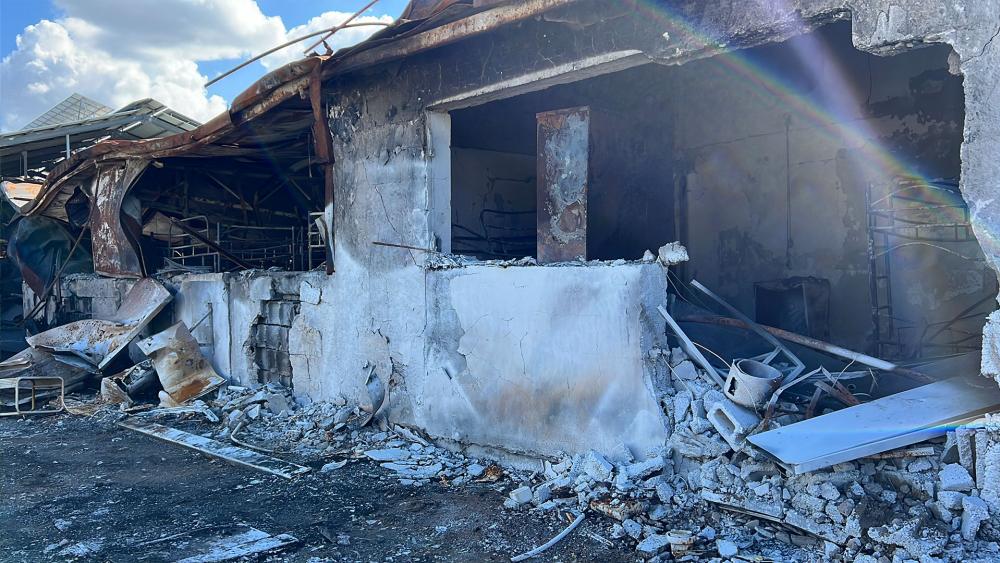 Those included 22 Thai and Nepalese workers murdered and taken hostage. Since then, one has been released.
Those included 22 Thai and Nepalese workers murdered and taken hostage. Since then, one has been released.
MUST SEE 'My Strength Came from the Lord': Liberated Hamas Hostage Tells CBN About Horrific Conditions
Established in 1966, Kibbutz Alumim's main income is agriculture, with hundreds of acres of fruit and avocado orchards, plus a large dairy.
Terrorists shot holes in the milk tank ruining it, burned storehouses of food, and delayed the milking of cows for days, leading to a huge drop in productivity.
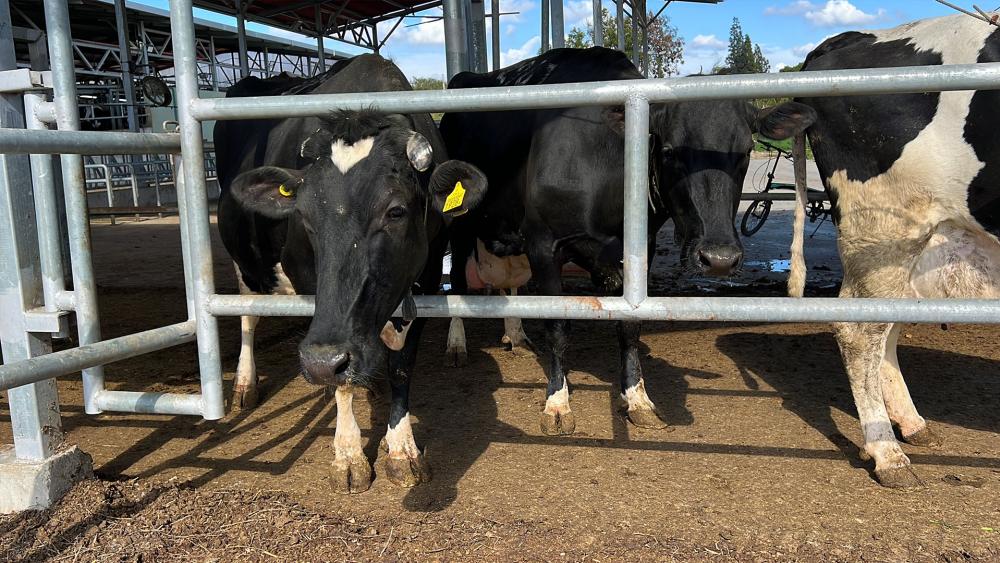 Then, there is the irrigation equipment.
Then, there is the irrigation equipment.
“Where we're farming in the Western Negev it's a semi-arid area. We're farming on the edge of the desert," Abraham said. "Everyone knows that (in) the issue of water, Israel is a leader in water use efficiency for agriculture. So the water infrastructure is at the heart of the agriculture economy.."
Standing near the assembly of irrigation pipes, she said, "This is where the pipes for the irrigation were wrapped around. Every single one of them was set on fire."
In this place, irrigation equipment for the potato crop is now destroyed, as are numerous greenhouses and chicken coops – 300,000 chickens were killed that day. As Israel’s largest pepper grower, Alumim had to leave fields of peppers unharvested.
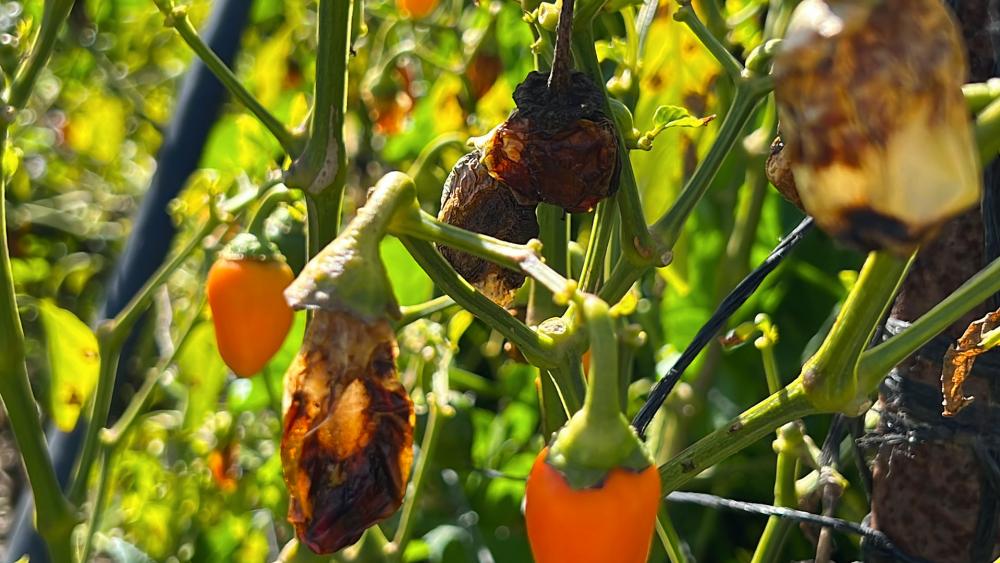
Water Reservoir Rebuilt, Crops Replanted
Back at the border, at Kibbutz Nahal Oz, Friebach says they rebuilt their water reservoir destroyed by Hamas and planted wheat about a month ago right up to the border.
"We are doing agriculture, until the last meter, even now when we are in the zone," he said. "We are standing here right now in a war zone. This is why you see a tank right there."
Abraham says the farmers should be honored in Israel's story.
"These are some of the heroes in our society that are going out under fire with a view to the future, with all their tractors stolen and burned, sowing wheat in the field," she insisted.
Like many in Israel, Abraham has great hope for the future.
"And then my dream is that on this area, which is where Israel made the desert bloom, we will be able to make it bloom once again – that we'll see the farmers growing back stronger with automation across the dairy and the greenhouses and the packing houses," she declared. "I want us to see new innovations for climate-resilient agriculture that the world can come here and learn from. I want to see the new generation coming into farming in Israel."
***Please sign up for CBN Newsletters and download the CBN News app to ensure you keep receiving the latest news about Israel's fight for survival.***
Did you know?
God is everywhere—even in the news. That’s why we view every news story through the lens of faith. We are committed to delivering quality independent Christian journalism you can trust. But it takes a lot of hard work, time, and money to do what we do. Help us continue to be a voice for truth in the media by supporting CBN News for as little as $1.










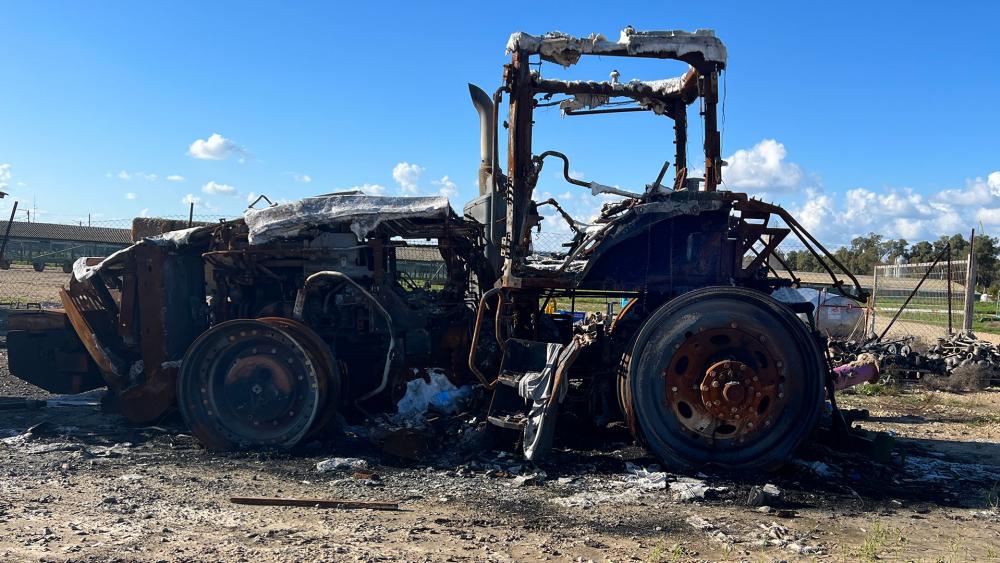

 Support CBN News
Support CBN News



